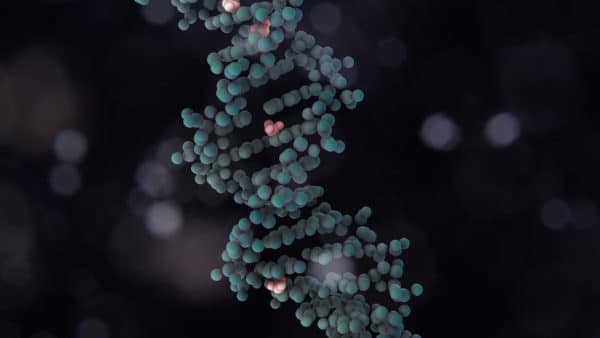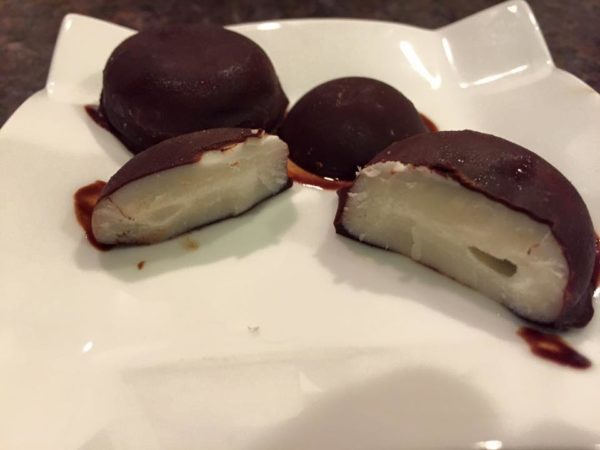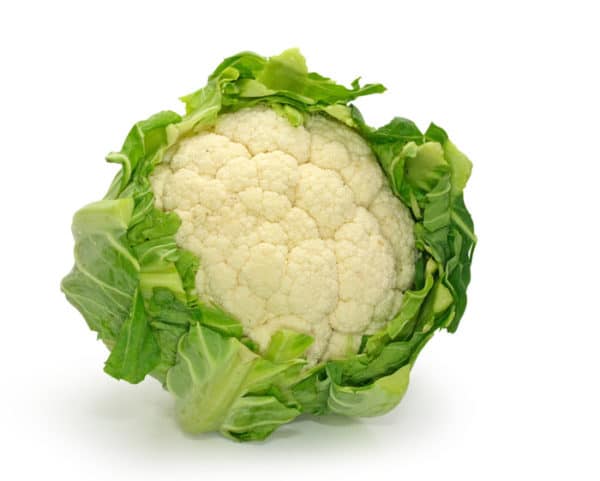
[et_pb_section admin_label=”section” transparent_background=”off” allow_player_pause=”off” inner_shadow=”off” parallax=”off” parallax_method=”off” padding_mobile=”off” make_fullwidth=”off” use_custom_width=”off” width_unit=”on” make_equal=”off” use_custom_gutter=”off”][et_pb_row admin_label=”Row” make_fullwidth=”off” use_custom_width=”off” width_unit=”on” use_custom_gutter=”off” padding_mobile=”off” allow_player_pause=”off” parallax=”off” parallax_method=”off” make_equal=”off” column_padding_mobile=”on”][et_pb_column type=”4_4″][et_pb_post_title admin_label=”Post Title” title=”on” meta=”on” author=”on” date=”on” categories=”off” comments=”on” featured_image=”on” featured_placement=”below” parallax_effect=”on” parallax_method=”on” text_orientation=”left” text_color=”dark” text_background=”off” text_bg_color=”rgba(255,255,255,0.9)” module_bg_color=”rgba(255,255,255,0)” title_all_caps=”off” use_border_color=”off” border_color=”#ffffff” border_style=”solid”]
[/et_pb_post_title][et_pb_text admin_label=”Text” background_layout=”light” text_orientation=”left” use_border_color=”off” border_color=”#ffffff” border_style=”solid”]

I use cinnamon in hot and cold drinks, as well as in my dehydrated goodies. The scent of cinnamon seems to linger throughout the house and just smells so relaxing. It is definitely a “feel good and comfy” type of scent. The smell of cinnamon triggers wonderful memories of previous holiday gatherings with my family. It also reminds me that the present holidays are just around the corner.
Did you know that along with the inviting aroma and taste, cinnamon is also an incredibly healthy spice? It is!
So let’s talk a bit about the health benefits of cinnamon!
First, where does Cinnamon come from?

Cinnamon can be used in that stick form, or can be made into an extract or ground into powder. Cinnamon also contains essential oils. You can purchase it as an essential oil as well as use it for its wonderful scent at any time of the year. It is also available in capsule form.
What are the healthy components of cinnamon?
The unique health properties of cinnamon are thought to come from its essential oils and certain compounds it contains. In particular. its active component is cinnamaldehyde.
Stabilizes blood sugar
Cinnamaldehyde is thought to be responsible for the stabilizing effect of cinnamon on blood sugar. It has been found to lower blood sugar levels as well.
I’ll talk much more about its effect on blood sugar in a moment. But I want to cover a few other health benefits as well. There has been a lot of research relating to cinnamon.
It is an antioxidant and it’s antimicrobial
In particular, in a review published in 2014 (The National Center for Biotechnology Information), cinnamon not only was found to lower blood sugar and cholesterol, but was also deemed a powerful antioxidant and antimicrobial. Cinnamon contains the antioxidant glutathione, as well as a flavonoid called MHCP (methylhydroxy chalcone polymer). Its microbial properties have been found to suppress the E.coli bacteria, which can cause urinary tract infections. Cinnamon has also been shown to suppress the fungus which creates Candida albicans overgrowth.
May play a role in inhibiting neural diseases such as Alzheimer’s
Researchers are also looking at cinnamon in regards to Alzheimer’s disease and Parkinson’s disease. The tangling of the protein tau, viewed as a hallmark symptom of Alzheimer’s, may actually be inhibited by cinnamon. Research published in 2009 in Journal of Alzheimer’s Disease found that an aqueous extract of Ceylon cinnamon inhibited tau aggregation. Could components in cinnamon actually offer some sort of neural protection against such diseases? Research continues to find out.
Helps stimulate circulation
In both India and Europe, cinnamon has been traditionally taken as a warming herb for “cold” conditions, often in combination with ginger (Zingiber officinale). The herb stimulates circulation, especially to the fingers and toes and has been used for arthritis. Cinnamon is also a traditional remedy for aching muscles and other symptoms of viral conditions, such as colds and flu.
 Can help relieve indigestion while stimulating the digestive system
Can help relieve indigestion while stimulating the digestive system
Cinnamon can also help with mild gastrointestinal spasms and can help relieve indigestion. Cinnamon is a carminative, an agent that helps break up intestinal gas that has traditionally been used to combat diarrhea and morning sickness.
Cinnamon warms and stimulates the digestive system, useful in weak digestion, colic, diarrhea, nausea and vomiting. The tannins have an astringent action, stemming bleeding in nosebleeds, heavy periods, and resolving diarrhea congestion. Cinnamon contains compounds called catechins, which help relieve nausea. The volatile oil in cinnamon bark may also help the body to process food by breaking down fats during digestion.
So you see, cinnamon is one of many healthy spices that you can find in your kitchen. There are many spices and herbs that help with digestion and other health issues, such as inflammation or nausea.
Along with all of the health benefits mentioned above, cinnamon can help regulate – and even lower – your blood sugar.
Do you have issues with YOUR blood sugar?
About 50% of my patients come to me presenting with blood sugar issues. And, unfortunately, people often have blood sugar issues and may not even be aware of it. That is why I recommend that people self-test their blood sugar levels. It is easy to do. You might be surprised what you find out when you do!
But first, you need to understand what is happening in your body relating to your blood sugar levels.
When you eat carbs or proteins, they are turned into glucose, which is needed by your body’s cells for energy. Insulin is produced by your body every time you eat. The insulin transports blood sugar in the form of glucose from your bloodstream into your cells. When you eat carbs and proteins, your blood sugar rises and the body produces more insulin. Insulin rises and falls. Ideally your insulin levels, along with your blood sugar levels, are stable and not spiking all of the time.
But many people suffer from insulin resistance, pre-diabetes, or diabetes. Why?
Eating an ongoing diet that is high in carbs or full of sugars creates an environment where too much insulin is constantly released. Eventually your body’s cells stop responding to insulin. This is known as insulin resistance.
Additionally, your insulin receptors lose their sensitivity. When this happens, blood sugars can’t get into your cells and your blood sugar levels increase. Your body burns the excess glucose for its fuel rather than burning fat. Your body is in a state of inhibited fat burning, which is why you get the dreaded belly fat! As blood sugars rise, this leads to pre-diabetes, or even diabetes. This can also lead to many other diseases and health issues.
Fortunately, there are many things you can do to stabilize and lower your blood sugar.
First, you need to learn to measure your blood sugar!

Then you need to focus on diet and exercise changes. Stress management and other lifestyle factors also impact your blood sugar level. Stress, for example, causes your hormone cortisol to increase, which increases your blood sugar levels.
Do you know that years ago I was shocked to find out that I had a blood sugar problem! Yes, I did. It can be an issue for anyone, so you really do need to test yourself and know what is going on in your body.
Along with the above lifestyle changes, you can add a little spice to help your blood sugar levels as well! Cinnamon!
How does cinnamon help with blood sugar levels?
Cinnamaldehyde has insulinotropic effects. Whoa, what does that mean?
Well, it means that cinnamon enhances insulin sensitivity and increases insulin receptor sensitivity. This means that cinnamon is a healthy natural support for lowering blood sugar and insulin resistance. It is commonly used to help people with diabetes to metabolize sugar better, helping to control their blood sugar levels.
Cinnamon can also reduce the amount of glucose as blood sugar that enters the bloodstream after you eat. It actually interferes with various digestive enzymes, slowing the breakdown of carbs.
Animal and lab studies have shown that cinnamon reduces blood sugar spikes. Because it increases insulin sensitivity it improves the glucose uptake by cells.
What type of cinnamon is best?

Less commonly found and more expensive is “Ceylon cinnamon“, also referred to as “true cinnamon” (Cinnamomum Zeylanicum). It has less cinnamaldehyde than cassia does. Cassia has about 95%, while Ceylon more like 55% cinnamaldehyde. True cinnamon is the inner bark of a small evergreen tree native to Sri Lanka, and was used in ancient Egypt for embalming. It was also added to food to prevent spoiling. During the Bubonic Plague, sponges were soaked in cinnamon and cloves and placed in sick rooms. Cinnamon was the most sought after spice during explorations of the 15th and 16th centuries.
In human studies, cassia cinnamon has shown reductions in blood sugar levels. Most of the studies with Ceylon cinnamon have been animal and lab studies. They, too, have shown reduced blood sugar spikes, increased insulin sensitivity, and improvements in insulin resistance markers.
So which is better?
Try both! Do you prefer one taste over the other? Either is safe for most people at the rate of about 2 teaspoons a day or less in powdered form. However, anyone having a known liver problem should likely avoid cassia cinnamon. The important thing is to work with your doctor or practitioner. Do not stop taking prescribed diabetes medication without first checking with your doctor.
I’d suggest incorporating it into a nice warm cup of your favorite tea, or sprinkle on fruit, coconut or cashew yogurt, or in your daily ssmoothie. I’ve included a recipe at the bottom of this blog for my Spicy Chai Elixir. You can also check out this video on a delicious and simple Chia and Cinnamon drink. You can easily prepare this every day, yet make it a bit different each day as well. Delicious.
The research supports that cinnamon has positive health effects, especially relating to blood sugar. So incorporate cinnamon into an overall lifestyle program focused on improving your blood sugar. Include diet, exercise, stress management, along with other lifestyle changes! The most important thing is to check your blood sugar regularly! See if adding a daily dose of cinnamon has a positive effect for you.
Do you use cinnamon on a daily basis? What is your favorite way to use it? What is your biggest reason for using cinnamon every day?
I would love to share more with you about ways you can balance your blood sugar using such tasty foods such as cinnamon. You will find more recipes in our Blood Sugar Balancing Recipe Sampler.
Spicy Chai Elixir
Ingredients:
- 16 ounces purified water
- 1 scoop protein powder, your choice
- 2 tablespoon coconut butter (Artisana) or 2 tablespoons dried coconut
- 1 tablespoon maca powder (HealthForce Nutritionals)
- 1 teaspoon Siberian ginseng (eleuthero root) (Mountain Rose Herbs)
- 1/4 teaspoon astragalus powder (Mountain Rose Herbs)
- 1/2 teaspoon rhodiola (Mountain Rose Herbs)
- 1/2 teaspoon ashwagandha powder (Mountain Rose Herbs)
- 1/2-inch slice ginger
- 2 teaspoons cinnamon
- 1/4 teaspoon clove
- 1/4 teaspoon cardamom
- 1/2 teaspoon turmeric
- 4 drops cinnamon essential oil
- 1/4 teaspoon stevia, green leaf powder, or 3-4 drops your choice flavored Sweet Leaf Stevia (or 1 teaspoon Zero, if you don’t favor the taste of stevia)
Directions:
- Combine all ingredients in blender, and blend until smooth.
- Adjust sweetener and spices to taste and enjoy
[/et_pb_text][/et_pb_column][/et_pb_row][/et_pb_section]
Share this:

Are you feeling stuck?
Do you feel as if something is missing from your practice that's keeping you from delivering breakthrough outcomes for your clients?.
Recent Posts
Our Programs
Nutritional Endocrinology Practitioner Training (NEPT)
The Mastery and Certification tier is our flagship program and provides everything you need to feel confident as a practitioner who knows how to get results that lead to healthy and happy clients.
Functional Assessment Mastery
Explore the relationships between the most important hormones and their relationship with nutrition.
Functional Nutrition Mastery
Learn how to support your clients to eat and supplement in a way that reduces and eliminates chronic symptoms.
Medical Disclaimer: The information on this website is not intended to replace a one-on-one relationship with a qualified health care professional and is not intended as medical advice. It is intended as a sharing of knowledge and information from the research and experience of Dr. Ritamarie Loscalzo, drritamarie.com, and the experts who have contributed. We encourage you to make your own health care decisions based upon your research and in partnership with a qualified health care professional.
Disclosure: Sometimes (but not always), when I share resources in my programs, newsletter, and on my website, I'm using an affiliate link, which means I do make money if you buy. My credibility is extremely important to me; therefore, I only endorse the products, services, and people I believe in. DrRitamarie.com is independently owned and the opinions expressed here are my own.
Click here to see our Privacy Policy.


 Can help relieve indigestion while stimulating the digestive system
Can help relieve indigestion while stimulating the digestive system









